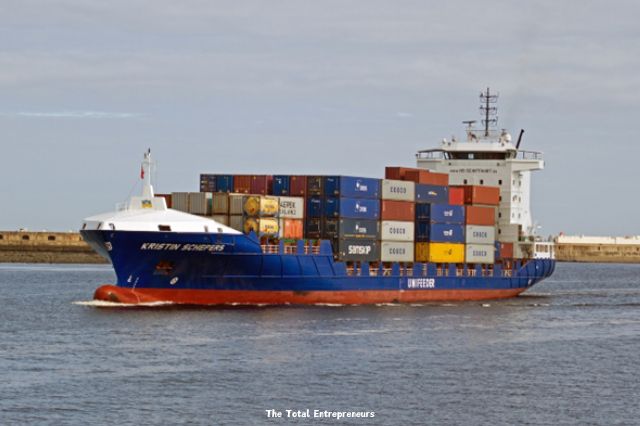Exploring the World of Freight Brokerage: A Comprehensive Guide
In today’s fast-paced world, getting goods from one place to another is a big challenge. This is where freight brokers come in. They play a crucial role in making sure products move smoothly from manufacturers to stores and eventually to customers. If you’re curious about what freight brokers do, how they help businesses, and even how to become one yourself, you’re in the right place.
What is a Freight Broker?
Freight brokers are experts in transportation logistics. They have a deep understanding of the industry, including:
- Transportation regulations: Freight brokers know the rules and laws about moving goods. This knowledge helps them ensure that shipments follow all the necessary guidelines.
- Geography: They understand different routes and areas, which helps them plan the best way to move goods from one place to another.
- Supply and demand: Freight brokers keep an eye on what’s happening in the market. They know when there’s a lot of cargo that needs moving and when there are plenty of trucks available.
- Different types of cargo: From food to furniture, freight brokers understand how to handle various kinds of goods. They know which trucks or containers work best for different items.
What Does a Freight Broker Do?
A freight broker’s job involves much more than just connecting people who have goods to ship with those who can transport them. Here’s a look at their daily tasks:
- Finding and vetting carriers: Freight brokers search for reliable trucking companies. They check their safety records, insurance, and reliability to ensure they’re trustworthy.
- Negotiating rates: They work out fair prices that benefit both the shipper (the company sending goods) and the carrier (the company moving the goods).
- Arranging transportation: Brokers plan out the entire journey of the shipment. They figure out the best routes and schedules to get goods where they need to go on time.
- Handling documentation: There’s a lot of paperwork in shipping. Freight brokers take care of contracts, bills of lading, and other important documents.
- Managing customer relationships: They stay in touch with both shippers and carriers, answering questions and solving problems that come up.
- Problem-solving: When issues arise (like delays or damaged goods), freight brokers step in to find solutions and keep shipments moving.
Why are Freight Brokers Important?
Freight brokers play a vital role in the supply chain, providing numerous benefits to both shippers and carriers:
Benefits for Shippers:
- Save time and money: Instead of dealing with multiple carriers, shippers can work with one broker who handles everything. This often leads to better rates and less hassle.
- Increased efficiency: Brokers use their expertise to find the fastest and most cost-effective shipping methods.
- Access to a wider network of carriers: Brokers have connections with many trucking companies, giving shippers more options for moving their goods.
- Reduced risk: By working with vetted carriers, shippers lower the chances of lost or damaged shipments.
- Improved customer satisfaction: Faster, more reliable shipping means happier customers for the shipper’s business.
Benefits for Carriers:
- Consistent freight: Brokers can provide a steady stream of shipments, helping carriers keep their trucks full and on the road.
- Simplified logistics: Carriers can focus on driving and delivering, while brokers handle finding loads and managing paperwork.
- Faster payment: Many brokers offer quicker payment terms than individual shippers, improving cash flow for carriers.
- Access to new business opportunities: Brokers can connect carriers with shippers they might not have found on their own.
- Negotiating power: Brokers can often secure better rates for small carriers by bundling shipments.
Types of Freight Brokers
While the core function of a freight broker remains the same, there are different types of freight brokers specializing in various niches:
- General freight brokers: These brokers handle a wide variety of goods and work with many different industries.
- Specialized freight brokers: Some brokers focus on specific types of cargo, like refrigerated goods, hazardous materials, or oversized loads.
- Intermodal brokers: These brokers specialize in shipments that use multiple forms of transportation, such as trucks and trains or ships and trucks.
- International freight brokers: These professionals handle shipments that cross country borders, dealing with customs and international shipping regulations.
How to Become a Freight Broker
Becoming a freight broker requires more than just a passion for logistics. It involves a combination of education, training, and licensing. Here’s a step-by-step guide to get you started:
- Obtain a high school diploma or equivalent: This is the minimum education requirement for becoming a freight broker.
- Consider further education: While not always required, a degree in logistics, supply chain management, or business can be helpful.
- Gain industry experience: Working in transportation, logistics, or customer service can provide valuable insights into the industry.
- Get the necessary training: Many aspiring brokers take courses to learn about industry regulations, best practices, and software tools. Training for a freight broker license can provide you with the knowledge and skills needed to succeed in this field.
- Obtain a freight broker license: In the United States, you need to get a license from the Federal Motor Carrier Safety Administration (FMCSA). This involves filling out an application, paying a fee, and obtaining a surety bond.
- Start your own brokerage or work for an existing one: You can either launch your own freight brokerage business or gain experience by working for an established company.
- Build your network: Develop relationships with shippers and carriers. Networking is crucial in this industry.
- Invest in technology: Use software tools that help manage loads, track shipments, and handle accounting tasks.
- Stay updated on industry trends: The transportation industry is always changing. Keep learning about new regulations, technologies, and best practices.
Essential Skills for Freight Brokers
Beyond the technical knowledge and licensing requirements, successful freight brokers possess a unique set of skills that enable them to thrive in this demanding profession:
- Communication skills: Freight brokers must clearly convey information to shippers, carriers, and other parties involved in the shipping process.
- Negotiation skills: Being able to negotiate fair rates that satisfy both shippers and carriers is crucial.
- Problem-solving skills: When issues arise (like weather delays or mechanical problems), brokers need to think quickly and find solutions.
- Time management skills: Juggling multiple shipments and deadlines requires excellent organizational abilities.
- Customer service skills: Building and maintaining good relationships with clients is essential for long-term success.
- Technology skills: Familiarity with transportation management systems and other logistics software is increasingly important.
- Financial management skills: Understanding pricing structures and managing cash flow are crucial for running a successful brokerage.
- Sales and marketing skills: Attracting new clients and growing the business requires some sales and marketing know-how.
The Freight Brokerage Process
The freight brokerage process involves a series of steps that ensure the efficient and timely movement of goods from origin to destination. Here’s a simplified breakdown of the process:
- Shipper requests a quote: A company with goods to ship contacts the broker for pricing information.
- Broker provides a quote: After considering factors like distance, cargo type, and current market rates, the broker offers a price.
- Shipper accepts the quote: If the shipper agrees to the price, they give the broker the go-ahead to arrange the shipment.
- Broker finds a carrier: The broker reaches out to their network of trucking companies to find an available carrier for the job.
- Broker negotiates with the carrier: They work out the details of the shipment, including pickup and delivery times, and agree on a price.
- The carrier picks up the shipment: The trucking company collects the goods from the shipper.
- Broker tracks the shipment: Throughout the journey, the broker monitors the shipment’s progress and addresses any issues that arise.
- Carrier delivers the shipment: Once the goods reach their destination, the carrier completes the delivery.
Conclusion
Freight brokers play a vital role in keeping goods moving efficiently across the country and around the world. They bring together shippers who need to transport products with carriers who have the means to move them. By handling the complex logistics of freight transportation, brokers allow businesses to focus on what they do best – whether that’s manufacturing products or selling goods to customers.





